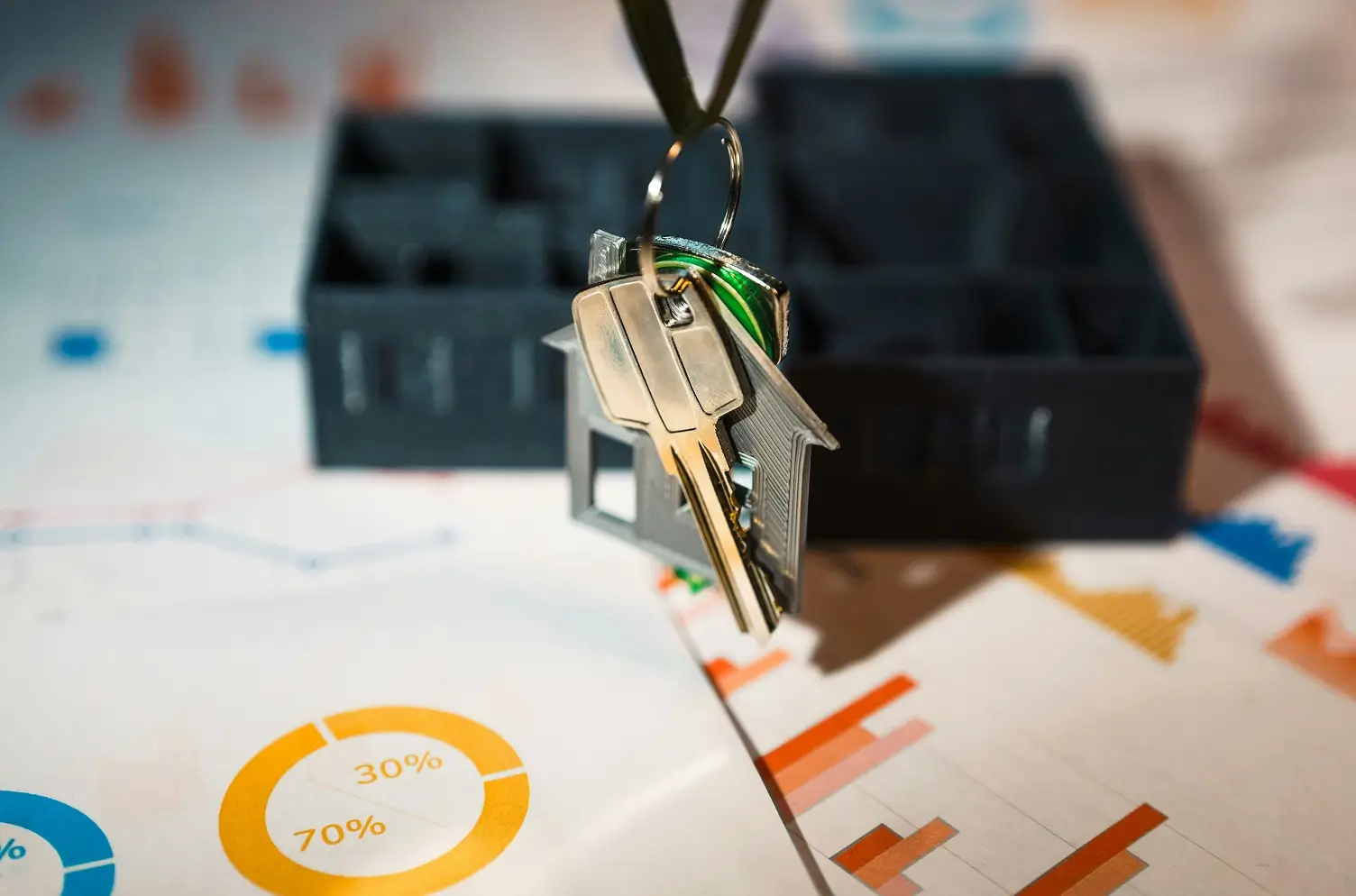What's The Lowest Credit Score To Get A Bad Credit Mortgage In The UK?

Understanding the minimum credit score required to secure a bad credit mortgage in the UK can be challenging. We sympathise with how difficult this can be, as we've experienced it too.
Hence, we've conducted comprehensive research to guide you through this complicated circumstance a bit more comfortably. Let's explore the essential factors about obtaining that mortgage, shall we?
Bad Credit Mortgage: Key Takeaways
-
Adverse credit mortgages, also known as bad credit mortgages, are special loans for people with poor credit, like CCJs or IVAs. They have bigger deposits and higher interest rates.
-
In the UK, credit scores affect your chance to buy a house. Agencies like Experian and Equifax check how well you manage money.
-
The lowest score for a bad credit mortgage varies by lender but is around 550-620. Below 620 might need extra steps to get approved.
-
Some lenders may offer flexibility if you have a guarantor or can make a larger deposit, even with lower scores.
-
Improving your credit score helps. Pay off debts and fix any mistakes on your report before applying for better chances.
What is a Bad Credit Mortgage?
Moving from the basics, let’s talk about bad credit mortgages. These are for people with a bad credit history. Think of CCJs, IVAs, even bankruptcies. We’ve seen them offered by specialist lenders who understand that everyone makes mistakes.
They come with bigger deposits and lower borrowing limits. Yes, the interest rates are higher too.
We know because we’ve been there. After a CCJ six years ago, finding a mortgage felt impossible until we found these special loans. These lenders looked at us differently—they cared more about our future than our past mistakes.
They required a guarantor for some peace of mind but gave us a chance to own a home again.

Understanding Credit Scores and Credit Reports in the UK
In the UK, credit scores play a big role in buying a house. They show lenders if you’re good with money.
How credit scores are calculated
Credit scores come from how we handle money. Agencies like Experian, Equifax, and TransUnion watch over this. They look at if we pay bills on time, our income stability, and how much deposit we can put down.
These bits add up to a score. For example, while Experian smiles at 700 or more, Equifax nods at around 475.
Our own journey showed us the mix in these numbers. We found that paying things off on time pushed our scores up faster than we thought possible. Also, showing a steady job and saving for a bigger deposit made a big difference.
Additionally, the credit file, which includes details like defaults and payment history, is crucial in mortgage applications, especially for individuals with bad credit.
We move next to talk about major credit reference agencies and their roles…
Major credit reference agencies
In the UK, our dependence is on three principal entities for credit score verification: Equifax, TransUnion, and Experian. These agencies amass our financial records. They observe our financial behaviour and loan management.
This assists in banking decisions regarding mortgage approval for us.
We all require a bit of aid from friends such as Equifax, TransUnion, and Experian.
Now, let’s proceed to understand what the minimum credit score required for acquiring a bad credit mortgage is.

How Do Lenders Evaluate Credit History?
When it comes to evaluating your credit history, lenders leave no stone unturned. They dive deep into several key factors to gauge your financial reliability.
Payment History
First up is your payment history. Lenders scrutinize how well you’ve managed to keep up with your payments. Have you been punctual, or are there late payments, defaults, or even bankruptcies lurking in your past? These elements can significantly impact your credit score and, consequently, your chances of securing a mortgage.
Credit Utilization
Next, they look at your credit utilization ratio. This is essentially the amount of credit you’re using compared to what’s available to you. High credit utilization can be a red flag, indicating a higher risk of default. Keeping this ratio low can work in your favor.
Credit Age
The age of your credit accounts also plays a role. A longer credit history can be beneficial as it shows lenders that you’ve been able to manage credit over an extended period. It’s like a track record of your financial behavior.
Credit Mix
Lenders also consider the variety of credit types you have. A diverse mix—such as credit cards, loans, and mortgages—can be a positive indicator. It shows that you can handle different forms of credit responsibly.
Public Records
Lastly, public records like bankruptcies, foreclosures, and tax liens are reviewed. These can be major red flags and can significantly lower your credit score.
All these factors come together to form your credit score, a numerical representation of your creditworthiness. A higher credit score suggests a lower risk of default, while a lower credit score indicates a higher risk. Understanding these elements can help you better manage your credit history and improve your chances of getting a mortgage, even with a lower credit score.
The Lowest Credit Score for a Bad Credit Mortgage
Finding out the lowest credit score for a bad credit mortgage in the UK can feel like a mystery. Each lender has their own rules, but generally, scores below 620 might need a closer look.
Typical credit score requirements
We’ve seen many cases, and from our experience, we know there’s no one-size-fits-all credit score for snagging a mortgage, especially if your credit’s seen better days. It’s true, the number can swing a fair bit depending on who you’re asking to lend you the money.
Here’s a neat little table to break down what we’ve found about the typical credit score requirements for a bad credit mortgage:
|
Credit Score Range |
Mortgage Possibility |
|---|---|
|
550 or below |
Limited options, but not impossible |
|
600 |
Fair—chances improve, with conditions |
So, with a score of 600, you’re in the fair zone. It means you’ve got a fighting chance for approval, but probably with a few strings attached. If your score dips to 550 or lower, don’t lose hope. Yes, the road’s tougher, and the options are fewer, but it’s not a dead end.
We’ve had to dig deep for clients with scores in these ranges. Sometimes, it means a bigger deposit—think up to 30%—or accepting higher interest rates. It’s all about showing lenders you’re worth the risk.
Improving your credit score before you apply can really help. Paying off debts and fixing errors on your report can give your score a boost. Every little bit helps.
From our desks, working through these scenarios time and again, we’ve seen success stories emerge from what looked like tough spots. Your journey might be challenging, but it’s not impossible.
Exceptions and flexibility from lenders
So, after looking at the typical credit score needs, you might wonder about room for manoeuvre. Good news is that lenders do show flexibility. Different ones have their own rules on what counts as bad credit.
This means they can look at things in more than one way.
Some are okay with lower scores if you have a guarantor. This is someone who agrees to cover your payments if you can’t. It makes lenders feel safer about giving you money. We’ve seen this work well for people we know.
They got their mortgage even though their scores weren’t great.
Regular payments and good money management make getting a mortgage easier.
Also, while many ask for a 20-25% deposit, some may accept less under the right conditions. This shows there’s some wiggle room based on your situation and past money habits.
Specialist mortgage lenders play a crucial role here, especially for individuals with low credit scores. They focus on providing options that might not be available to direct borrowers, often working through mortgage brokers to find the best deals.
Tips to Improve Your Credit Score Before Applying
Improving your credit score can make a big difference. Start by paying down debt and checking your credit report for any mistakes.
Pay off outstanding debts
We all know clearing debts can boost our credit score. It shows we’re good at paying back what we owe. This makes us look better to lenders. They like it when they see we make payments on time.
So, if we have loans or credit card balances, paying these off is a smart move. It’s one way to show we’re serious about managing our money well. Timely credit card payments are particularly important as they demonstrate reliability to lenders and can significantly improve our credit scores.
Paying off debts doesn’t just help with getting a mortgage; it improves our overall financial health too. Negative marks, like missing a payment, can stay on our credit report for six years but their effect fades as time goes on.
Starting to clear these debts means they start to matter less sooner. Plus, every payment on time helps build a stronger credit history over months and years.
Correct errors on your credit report
We often check our credit reports for mistakes. It’s key to catching errors and fixing them right away. This helps improve our score fast. We’ve found wrong information a few times.
Each time, we contacted the credit reference agencies in the UK to sort it out.
Keeping an eye on our credit report also showed us any fraudulent activity early on. This step is crucial for keeping a healthy credit score over time. Correcting inaccuracies and monitoring for fraud has been essential in maintaining our financial health.
First-Time Buyers with Bad Credit
Being a first-time buyer with bad credit can feel like an uphill battle, but it’s not an impossible one. There are several steps you can take to improve your chances of getting a mortgage.
Check Your Credit Report
Start by reviewing your credit report. Make sure it’s accurate and up-to-date. If you spot any errors or inaccuracies, dispute them immediately. This can help improve your credit score and present a clearer picture to potential lenders.
Improve Your Credit Score
Work on boosting your credit score. Make timely payments, reduce your debt, and avoid new credit inquiries. These actions can gradually improve your credit rating, making you a more attractive candidate for a mortgage.
Consider a Co-Signer
If you have a co-signer with good credit, it can significantly improve your chances of getting a mortgage with a lower interest rate. A co-signer essentially vouches for your ability to make mortgage payments, providing an extra layer of security for the lender.
Look for Bad Credit Mortgage Lenders
Some lenders specialize in bad credit mortgages. These bad credit mortgage lenders often have more flexible credit requirements and may offer competitive interest rates. It’s worth exploring these options to find a lender that suits your needs.
Work with a Mortgage Broker
A mortgage broker can be a valuable ally in your journey to homeownership. They can help you navigate the mortgage application process and connect you with lenders willing to work with you despite your bad credit. Bad credit mortgage brokers have the expertise and connections to find the best deals for your situation.
Remember, getting a mortgage with bad credit might require some concessions, like a larger down payment or a higher interest rate. But with the right guidance and support, you can still achieve your dream of owning a home. Keep working on improving your credit habits, and don’t lose sight of your goal.
Conclusion
So, figuring out the lowest credit score for a bad credit mortgage in the UK? It's not set in stone. Each lender has their own idea of what they see as an okay score. Some might give you a chance even with low scores, thanks to services like Revolution Brokers which help find good deals without charging extra.
Plus, tools on these sites can really make things easier when you're planning to apply. In short, don’t worry too much about hitting a specific number; focus more on finding the right help and improving what you can control – your credit habits!
Related Posts
Ask the Expert
Mortgage Brokers




